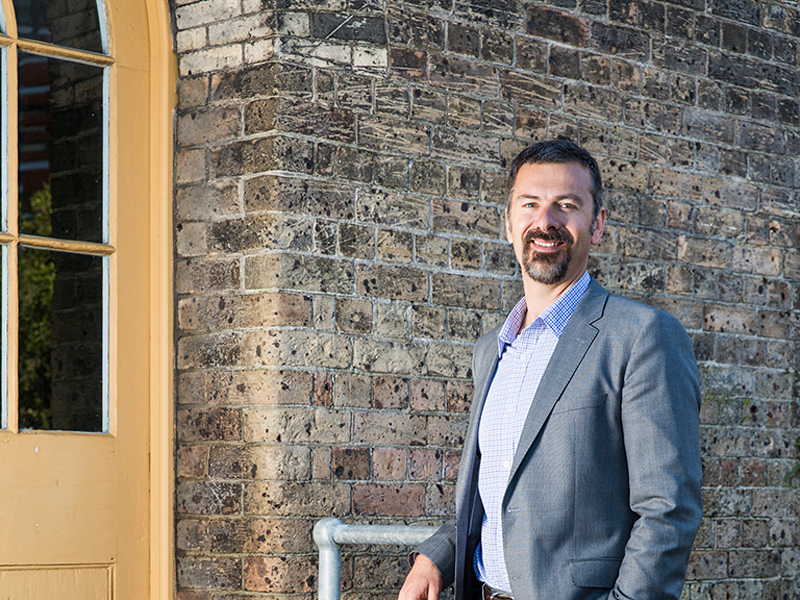Australia has a new research agency today with the creation of Data61 from the merged interests of Australia’s premier ICT research house NICTA, with the Digital Productivity flagship of the nation’s largest R&D entity, the CSIRO.
The combination of each agencies strengths should create a powerful new force in Australia’s information technology research sector. But it is a sad day nonetheless, and draws to a close what had been a bold experiment in NICTA.
The merger announcement raises more questions than it answers (it has been clear the two bodies would come together for some time). First among these is whether the NICTA commercial research mission can survive the crushing inertia of CSIRO culture.

To look on the positive side, Data61 looks like it has been structured with two things in mind, and both are critical. The first is the survival of one of NICTA’s core mission to train the next generation of digital technology leaders through its PhD program. With partner universities, it has more than 300 PhD students involved in its research programs.
The second is commercialisation. NICTA had only in the most recent years, started to crank up its commercial engine, both in terms of paying commercial engagements, and through spin-off of technology created in-house.
The CSIRO’s relatively new chief executive Larry Marshall is on the record suggesting he wants NICTA culture (in relation to commercial outlook in particular) to influence the CSIRO, rather than have the influence flow in the other direction. Which is just as well, because the NICTA model needs to breathe.
This is perhaps why Data61 has been branded separately. It is also being given its own board of directors, which is expected to be announced in the next several weeks.
It is not clear where the board’s independent directors will come from, but – as would normally be the case when one organisation acquires another – they will be outnumbered by the CSIRO representative.
Lay-offs will inevitably follow, as you would also expect. Both organisations have been in cost-cutting mode as a result of funding cuts, and the creation of a new entity does nothing to change that difficult fact.
Regardless of the funding difficulties that brought us to this point, there is an incredible upside to Data61. Its name suggests a focus on building on its existing core strength in data analytics (61 being the data calling code for Australia.) I am sure the name will grow on us, and here’s hoping the CSIRO does not blow a huge pile of marketing dollars trying to make us love it. Much better to just get on with it, deliver something awesome.
Larry Marshall has hand-picked expatriate Australian Adrian Turner to run the show. Mr Turner has spent the past 18 years working in Silicon Valley, firstly with tech giant Philips, and later in building companies and building VC capability.
Most recently Mr Turner was with Borondi, a Valley-headquartered company that set out to bring disruptive technology to conservative industries like agriculture and mining. This is a strange choice of leadership. There is an unimaginable gulf of difference between Mr Turner’s experience before taking this job, and what will confront him at this merged CSIRO/NICTA.
Of course we get that Mr Turner is all about the business. But NICTA, and now Data61, has somewhat of a sacred duty to perform in the national interest. This is not an overstatement. The 300 PhD’s being trained and researching at any given time are an investment in our future.
And frankly they are a scarce resource. No pressure, Mr Turner, but don’t mess this up. The development of this research capability and building the world-class next generation expertise must be the primary goal here.
This has been a difficult time for both NICTA and the CSIRO. NICTA in particular has been up against a wall since the 2014 budget. Staff have been on edge since that time. And the CSIRO’s own budget challenges are well documented.
So here’s the thing. The creation of Data61 is enormously positive. But it is born out of such a fraught environment that it is difficult to celebrate.
If the new management at Data61 can create an organisation that celebrates courage as much as it pursues excellence, if it can build a service culture while encouraging commercial thinking, and if it can selectively focus its core research on a definable set of strengths, then we will have a killer institution in Australia.
If it can break free of the insufferable mendacity of the CSIRO, the throttled, oxygen-starved shadow of its audacious past, then Data61 can become a giant.
Please, let it live!
Do you know more? Contact James Riley via Email.

